Turkey: the country where the virus spreads the fastest
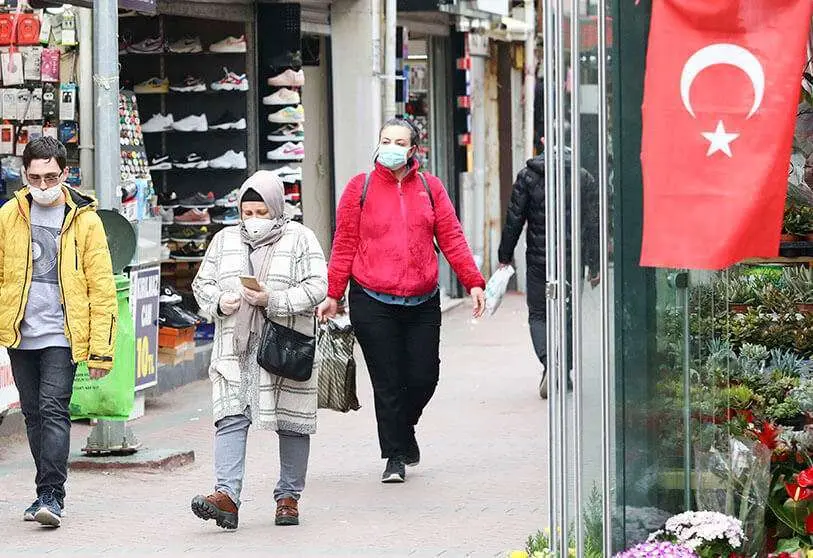
3,000 people are infected with coronavirus every day, and so far there are more than 34,000 cases. This is the dizzying rate that Turkey has been counting cases of COVID-19 since the confirmation of the first one four weeks ago. In addition, the collapse of the health system is looming, with more than 1,400 patients in intensive care, 62% of the total capacity in this area.
Although deaths are still low, compared to other countries such as Spain or Italy, Ankara has 732 deaths and the figures of infections, according to the British newspaper The Guardian, suggest that Turkey has the highest growth rates of infection in the world. The Financial Times made the same prediction a week ago, seeing Turkey as one of the countries with the fastest growth in coronavirus outbreaks.
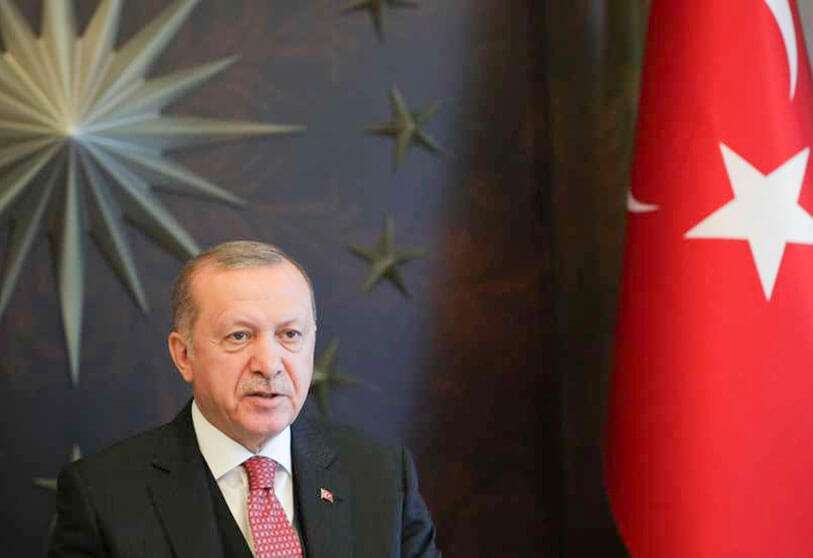
Turkish President Recep Tayip Erdogan, who is reluctant to shut down the country in order to prevent further infections, maintains the idea that “the wheel of the economy must keep turning”. In his speech to the nation he insisted on his position that the economy must continue to function: “Turkey is a country where production must continue” under all circumstances and conditions.
As the number of coronavirus infections in Turkey continues to rise dramatically and the authorities tighten social restrictions, concerns are being raised that Erdogan's government is hampering efforts to inform the Turkish public about the extent of the outbreak. Just a week ago, Erdogan advised a “voluntary” quarantine. However, health officials have been stressing to the public for weeks the importance of staying home and respecting the rules of social distancing.

The Turkish Government has quarantined 41 cities across the country, but has not gone so far as to declare a national lockdown. Classes, mass prayers and international flights were suspended, and those over 65 years old were ordered to remain in solitary confinement in their homes. The Turkish Health Minister, Fahrettin Koca, announced on Tuesday that those infected with the coronavirus in the country will have to download an application on their mobile phones so that the authorities can check that they do not leave their homes, and thereby control the location of those affected at all times. In addition, troop movements in Syria have been limited in order to combat the pandemic.
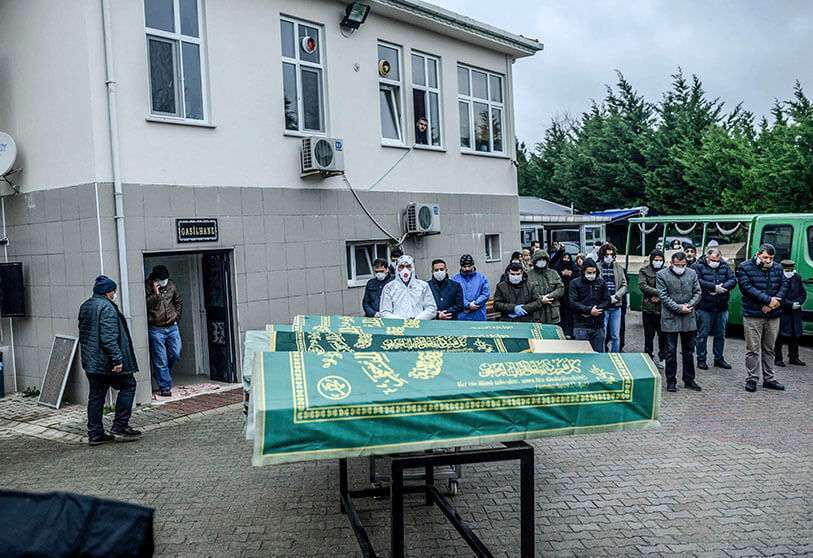
The president has promised to build two field hospitals in Istanbul, with a capacity of 1,000 beds each, which will be operational within the next 45 days. The Turkish cultural heartland has 60% of the country's COVID-19 cases.
The Erdogan administration has also ordered all citizens to wear masks when shopping or visiting crowded public places. The Government announced that it would provide masks to all families, free of charge, in a country of 80 million people. This was the last measure taken by an administration that insisted that the spread of the virus was controlled. Local media speak of official studies that show that the main sources of infection are travelers who arrived from Europe and religious pilgrims returning from countries such as Saudi Arabia and Iraq in the days before March 11, the day the first case of contagion was reported.
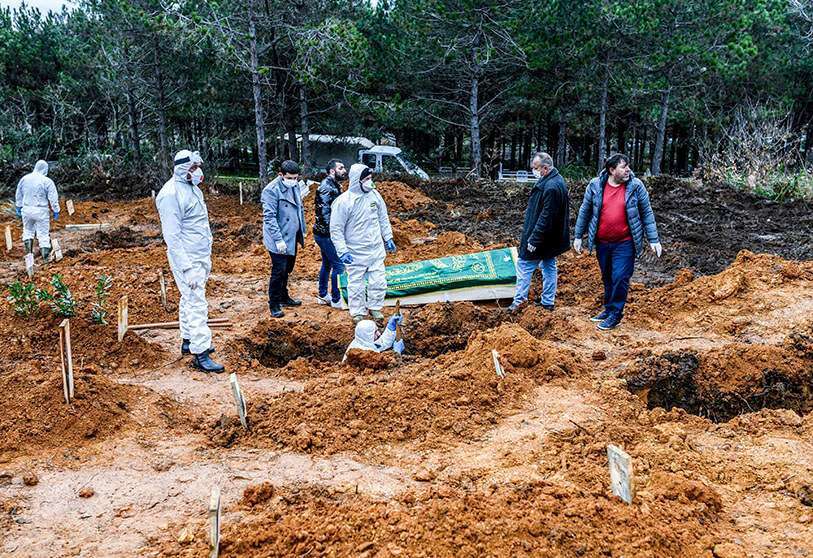
Furthermore, the tensions between members of the government who want stricter measures against those who are concerned about the economic damage that could lead to a standstill, in a country that has not yet overcome the economic crisis of 2018, puts strains on the table within the administration itself.
These political divisions, which add to the health and economic crisis, have also been reflected in the approval of a bill to release a third of prisoners, which will not include journalists, human rights activists or opposition politicians. Opposition politicians, such as the mayors of Ankara and Istanbul, the two largest cities, have called for stricter measures, including a complete shutdown.
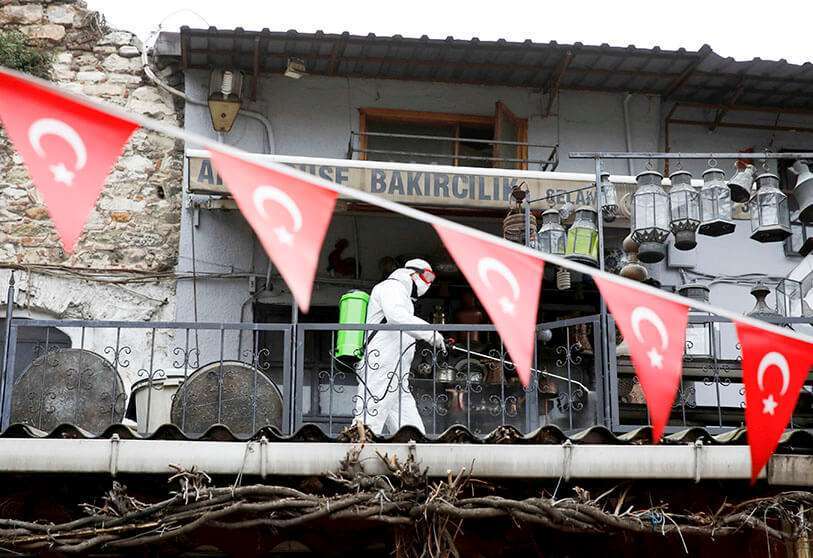
Another controversy has been a complaint filed by President Ruco against a well-known Turkish TV presenter, Fatih Portakal. The Fox TV journalist criticised the donation campaign led by Erdogan to help the authorities contain the spread of the coronavirus. Faced with the criticism, Erdogan accused the presenter of insulting him, which is a crime that can lead to almost five years in prison.
Reporters Without Borders announced that seven journalists have been arrested for reporting on the pandemic and accused of “spreading panic”. At least 385 people are being investigated for publishing critical articles on social networks.







